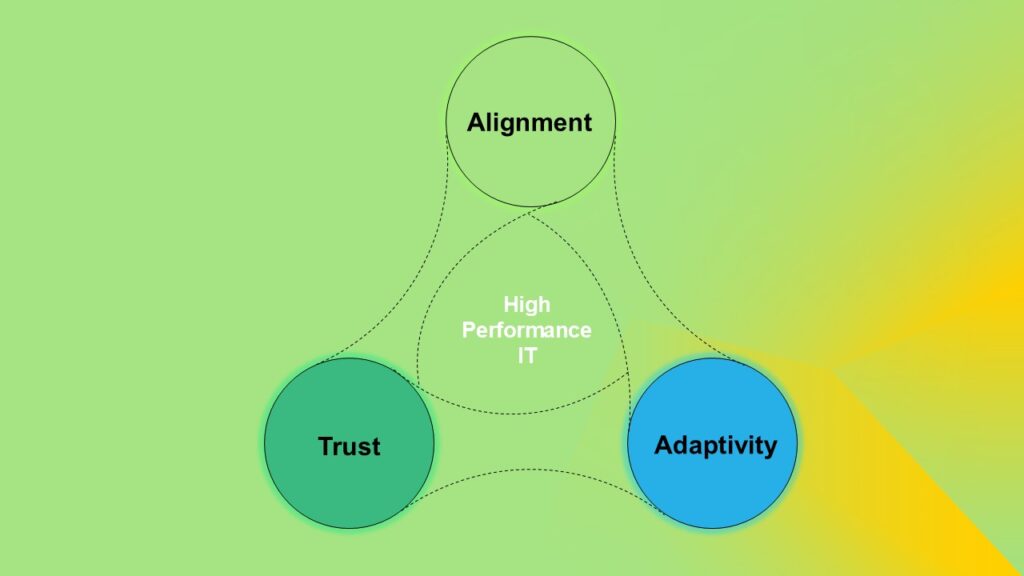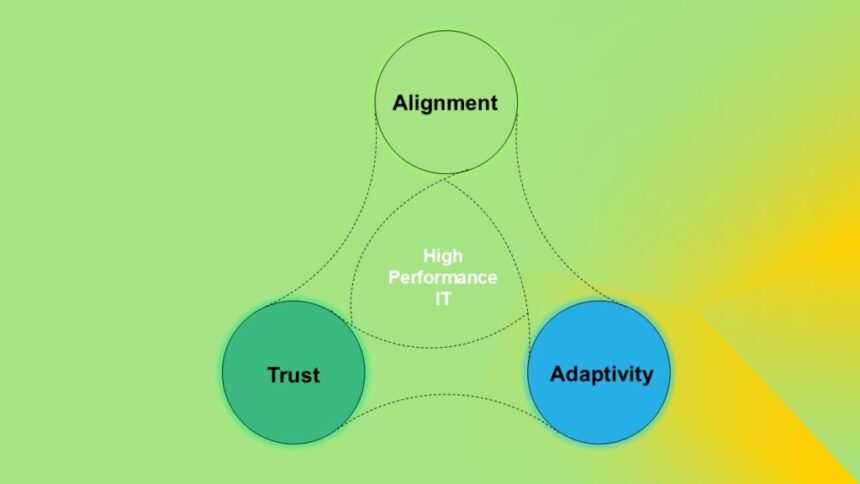
A satisfied customer should be the top priority for your artificial intelligence strategy. AI initiatives aimed at driving better customer experience (CX) require more than advanced technology and data analytics. Your business operations won’t get better simply by adding AI to your tech infrastructure.
Thriving AI projects depend on trust, alignment, and adaptivity. Technology and CX professionals must collaborate to further trust, alignment, and adaptivity when devising effective, sustainable, and scalable AI solutions:
- Trust is central to AI adoption by employees and customers. Today, AI is a tool. Tomorrow, AI will evolve into assistants at work and in our lives. It is our degree of trust in AI that defines the potential for how widely we adopt AI. Only if we trust AI will its full potential be realized. Building trust depends on providing transparency in how AI systems work and robust data governance practices. Business and tech leaders must clearly communicate AI’s capabilities as well as its risks and limitations. Transparency also involves elucidating the decision-making processes of AI models in the form of explainable AI. This way, both employees and customers can better understand and accept AI technology. Moreover, AI transparency and data governance practices assist with complying with data privacy- and security-related regulatory legislation such as the EU AI Act.
- Alignment between tech and CX ensures that AI supports business priorities. Alignment between tech and CX professionals implies thinking, planning, and pursuing the same strategic business objectives — consistently. This action builds trust. Your organization’s specific objectives and strategies must define your AI initiatives, not vice versa. Alignment between tech and CX professionals ensures that AI projects deliver tangible business value and integrate with workflows and systems. Collaborative planning and continuous dialogue between tech, CX, and AI professionals helps identify relevant use cases for AI in the CX context. Setting clear, measurable goals and KPIs for AI-empowered initiatives allows organizations to prioritize projects, track progress, and make necessary adjustments to stay on course.
- Adaptivity reflects changing customer expectations and market conditions. Your AI strategy must be adaptive, or else it is useless. The dynamic nature of AI technology and the environments in which they operate necessitate adaptivity. This adaptability ensures that AI initiatives remain relevant and continue to deliver value over time. Agile and human-centric design practices emphasize iterative development, allowing AI teams to quickly respond to new information and shifting requirements. Fostering a culture of innovation and flexibility supports the adaptive capabilities of AI initiatives. Accepting that not all AI initiatives for CX will succeed on the first try can lead to more innovative AI use cases in the longer term.
Our keynote at Forrester’s Technology & Innovation Summit EMEA outlines the key steps to deploying the triad of trust, alignment, and adaptivity for driving successful AI initiatives. These elements together create a robust foundation for AI initiatives in the CX context.








